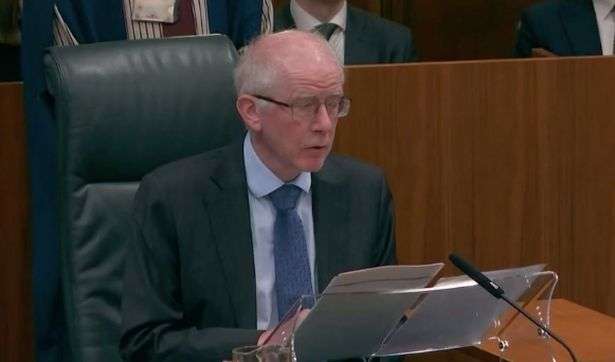The Supreme Court of the United Kingdom (UK) has ruled that without the consent of Westminster, Scotland cannot hold any referendum to determine whether majority of its citizens want it to secede from the UK or not.
In the popular ‘Indyref2 case’, the Scottish government were praying the Supreme Court to give it permission to hold an independence referendum on October 19, 2023 even though UK’s Parliament (Westminster) does not approve of it.
However, the Court presided over by Lord Robert Reed ruled that, matters of a referendum are the preserve of the British Parliament and so, without the approval of Westminster, the consequences of an independence referendum will be dire to British democracy.
“A lawfully held referendum would have important political consequences relating to the union and the United Kingdom Parliament.
“Its outcome would possess the authority, in a constitution and political culture founded upon democracy, of a democratic expression of the view of the Scottish electorate.”
Lord Reed, President UK Supreme Court

According to President of the Supreme Court, Lord Reed, the laws that created the Scottish Parliament in 1999 stipulated the limits of its powers.
The power over certain areas of the constitution including the union between Scotland and England were reserved to the UK Parliament.
Lord Reed also rejected the Scottish government’s argument that their intended referendum is only advisory and would have no legal effect on the union between Scotland and the United Kingdom.
Meanwhile, Scottish First Minister, Nicola Sturgeon, has addressed the country on the Supreme Court ruling.

Ms. Sturgeon claimed she respected the decision of the apex Court although she is disappointed by it. The First Minister stressed that Judges do not make the law, they only interpret it.
The Scottish First Minister noted that if the UK was indeed a voluntary partnership of Nations, then seceding should not be as difficult.
“Until now it has been understood by opponents of independence, as well as by its supporters, that the UK is a voluntary partnership of nations,[but] let us be blunt; a so-called partnership in which one partner is denied the right to choose a different future, or even to ask itself question cannot be described in any way as voluntary or even partnership at all.
“So this ruling confirms that the notion of the UK, a voluntary partnership of nations, if it ever was a reality, is no longer a reality, and that it exposes a situation that is quite simply unsustainable.”
Nicola Sturgeon, First Minister of Scotland
Another Route To Scottish Independence

In her tweet shortly after the Supreme Court ruling, Nicola Sturgeon, Scotland’s First Minister, insinuated that her government will seek other ways of fighting for independence.
“Scottish democracy will not be denied. Today’s ruling blocks one route to Scotland’s voice being heard on independence – but in a democracy our voice cannot and will not be silenced.”
Nicola Sturgeon, First Minister Scotland
Ms. Sturgeon had previously mentioned that she would use the next general election as a “de facto referendum” if the Supreme Court ruling went against her.
By that, she meant that her Party, the Scottish National Party (SNP) intends to campaign on the single issue of independence during the electioneering period.
The main opposition Party, the Labour Party on the other hand, is not as enthusiastic about independence as the SNP is.

Leader of the Scottish Labour Party, Anas Sarwar once said that, majority in Scotland and across the UK are calling for change,” and not a referendum or independence.
Recent opinion polls indicated that the country is essentially divided on the independence question, even though a narrow majority support the union with the UK.
UK’s Secretary of State for Scotland, Alister Jack, has insinuated that there are some issues of concern to the Scottish people which does not include a referendum or independence.
The UK government according to Alistar, is committed to working with the Scottish government on the “issues that matter most to people in Scotland.”
“People in Scotland want both their governments to be concentrating all attention and resources on the issues that matter most to them. That’s why we are focussed on issues like restoring economic stability, getting people the help they need with their energy bills, and supporting our NHS.”
Alistar Jack, Secretary of State for Scotland
Meanwhile, it is expected that there will be a number of pro-independence rallies in major towns and cities across Scotland today.
READ ALSO: NPP Executives Convince MPs To Allow Ofori-Atta Stay In Office




















